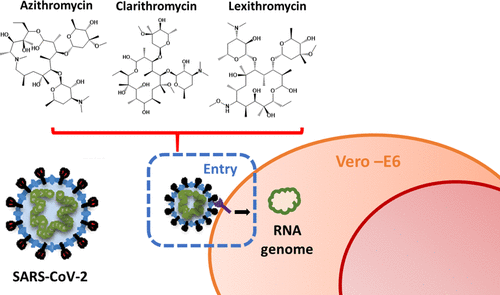The group had said the same back in March of 2020 but also made the speculative claim it might mean antibiotics could treat COVID-19. No one took it seriously because these were only computational models and real life experts don't like to take risks based on academic simulations. The method was based on molecular topology, mathematical chemistry that deals with the algebraic description of chemical compounds. It allows them to be easily characterized but there is a reason that Intel hires people to design chips and does not use broad academic models and it is not because they favor simplicity over accuracy. Simulation design is a sideline and not the focus of most academics and companies will be sued or out of business or both if their work is wrong.
What follow-ups did find is that these antibiotics might prevent the entry of the virus in vitro by deactivating the well-known spike protein.

Azithromycin is part of the list of drugs considered essential by the Spanish Ministry of Health in the management of the health crisis caused by COVID-19 but randomized trials have not found that it is an effective treatment for patients who are admitted to hospital with COVID-19 and outside additional indications is just a greater risk for antimicrobial resistance. Clarithromycin is already scheduled to be used in a clinical trial led by the San Carlos Clinical Hospital of Madrid, which is expected to begin shortly with COVID patients from 20 primary care centers.
How the study worked
To confirm the computational results, the best candidates were tested against two human coronaviruses (229E-GFP and SARS-CoV-2) in cell culture. Infection experiments demonstrated that azithromycin, clarithromycin, and lexithromycin reduce intracellular viral RNA accumulation and virus spread, as well as prevent virus-induced cell death, by inhibiting the entry of SARS-CoV-2 into cells.
Like epidemiology or animal models, experiments using cell cultures are only exploratory. No scientific conclusions can be made, that is why they note it might be effective, not that it is.
Citation: Jorge Galvez, RiccardoZanni, Maria Galvez-Llompart and Jose Maria Benlloch “Macrolides May Prevent Severe Acute Respiratory Syndrome Coronavirus 2 Entry into Cells: A Quantitative Structure Activity Relationship Study and Experimental Validation”. J. Chem. Inf. Model 2021. March 18, 2021. DOI: https://doi.org/10.1021/acs.jcim.0c01394





Comments